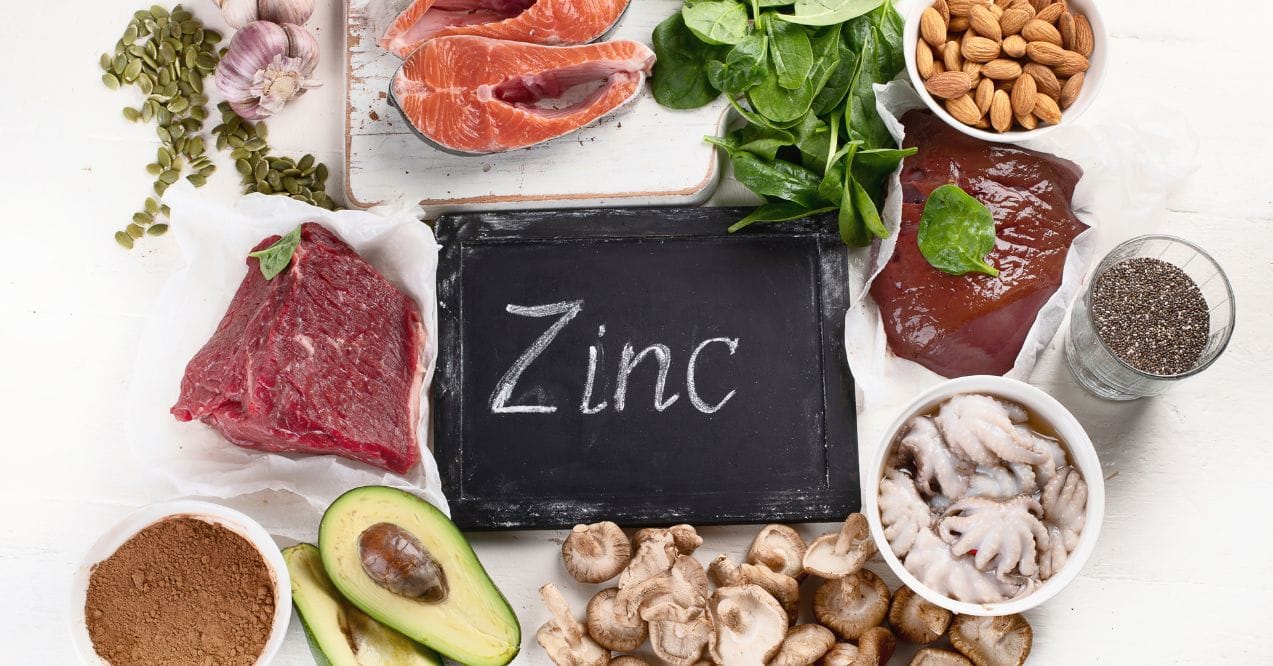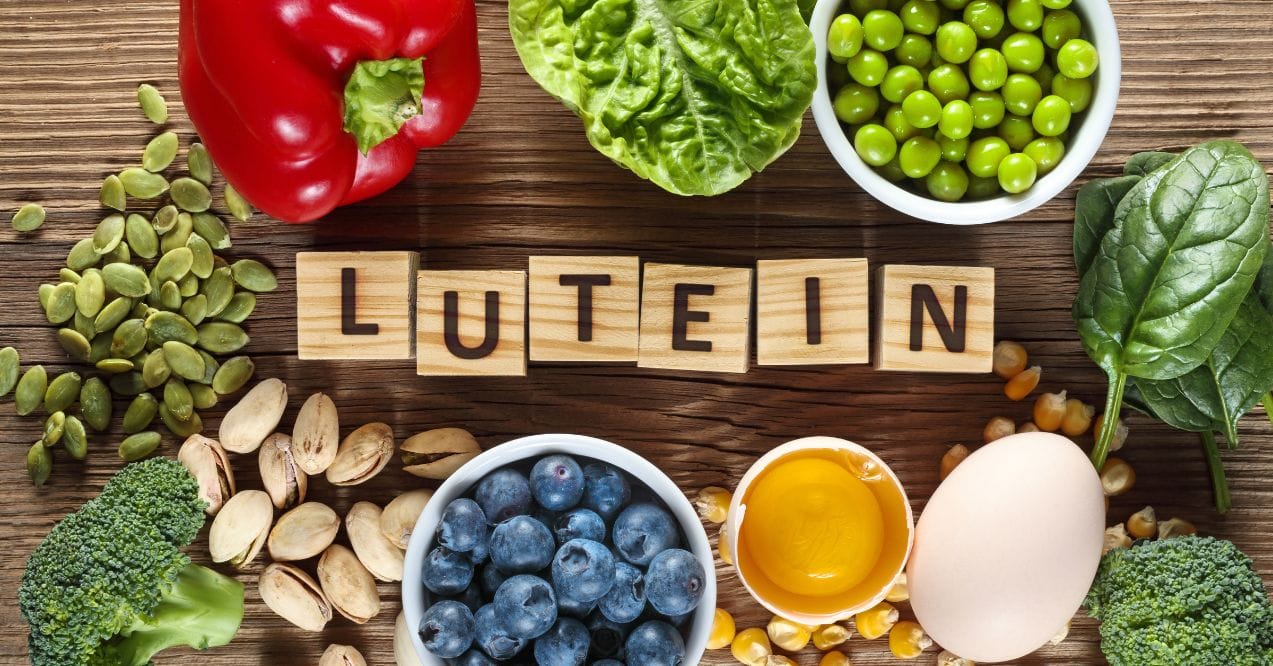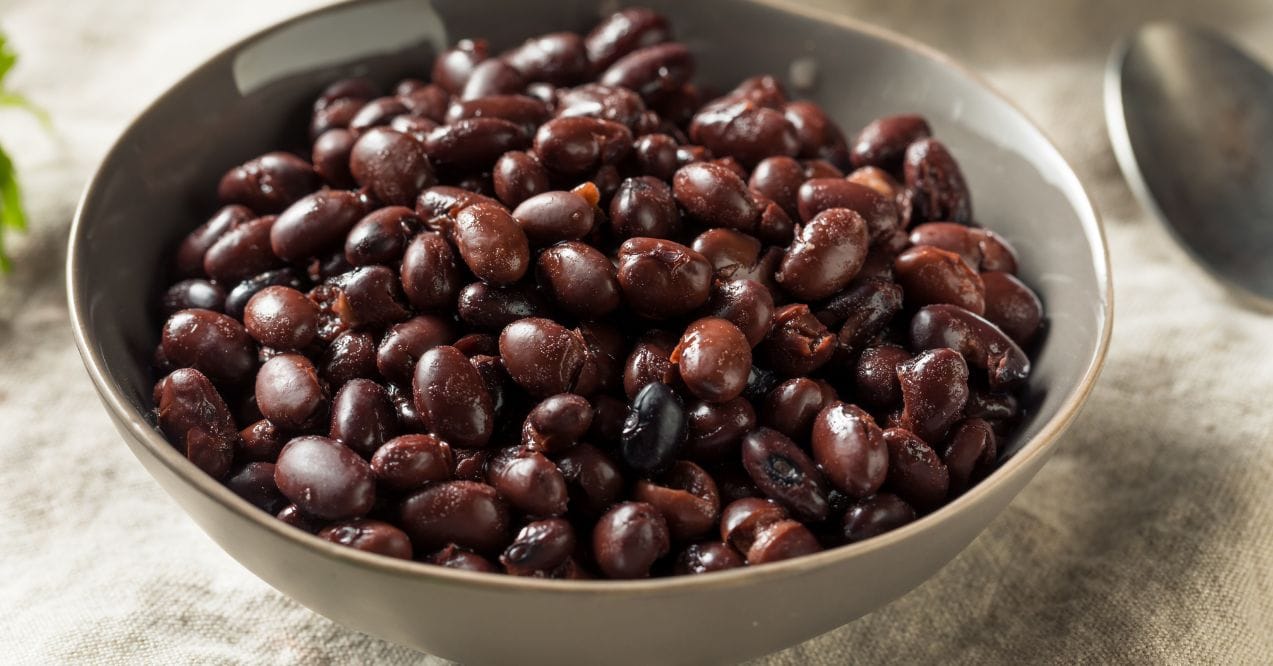Top 10 Foods That Are High In Zinc!
Medically reviewed by our experts


Zinc is an essential mineral your body needs for important functions like supporting immune health, aiding wound healing, and promoting normal growth. If you’ve ever wondered what foods contain zinc, the good news is you don’t need to rely only on supplements. Many everyday foods – both plant-based and animal-based – are naturally rich in this mineral. In this article, we’ll explore 10 excellent zinc sources, explain why they’re beneficial, and share practical ways to include them in your daily meals.
Key Article Findings
- Oysters, red meat, and pumpkin seeds are among the top food sources of zinc.
- Plant-based foods can provide zinc, but absorption may be less efficient than animal-based sources.
- Breakfast cereals often contain added zinc, making them a convenient option to boost intake.

Why Zinc Is Important
Zinc is a powerhouse mineral that plays a crucial role in maintaining various body functions. It supports the immune system, helps the body produce proteins and DNA, and aids in cell division. Here’s why it’s essential:
- Immune Support – Zinc helps maintain healthy immune function, supporting your body’s ability to fight off infections.
- Wound Healing – Zinc is important for tissue growth and repair, which aids in the healing of wounds.
- Protein Synthesis – Zinc is involved in the production of proteins that are crucial for growth and development.
- Cell Growth & Division – It helps regulate cell growth, making it key for normal body development.
- Antioxidant Properties – Zinc contributes to neutralizing free radicals, helping to protect the body from oxidative stress.
What Foods Contain Zinc? Top 10 List
Zinc is an essential mineral that plays a key role in supporting immune health, wound healing, and cellular functions. If you’re wondering what foods contain zinc, there are numerous delicious options to include in your diet, whether you prefer animal-based or plant-based foods. Here are the top 10 foods rich in zinc.
1. Oysters
Oysters are one of the richest natural sources of zinc. A single serving can provide more than the recommended daily intake. In addition to zinc, they are packed with protein and omega-3 fatty acids, making them a nutritious addition to your diet. Best enjoyed cooked or in seafood dishes like oysters Rockefeller or as a topping for salads.
2. Red Meat (Beef, Lamb)
Red meat, especially beef and lamb, is an excellent source of zinc. These meats also provide iron and B vitamins, which support overall health. Opt for lean cuts like sirloin or tenderloin to reduce saturated fat intake while maximizing zinc benefits. Red meat can be grilled, roasted, or incorporated into stews and stir-fries.
3. Poultry (Chicken, Turkey)
Poultry, including chicken and turkey, provides a moderate amount of zinc, making it a versatile addition to your daily meals. Whether roasted, grilled, or added to soups and salads, poultry is an easy way to boost your zinc intake. It’s also rich in protein and other essential vitamins like B6, which supports the immune system.
4. Pumpkin Seeds
Pumpkin seeds are a fantastic plant-based source of zinc, as well as magnesium, which helps support muscle function. These seeds are easy to add to breakfast cereals, salads, or yogurt. They’re also a great snack on their own or sprinkled over dishes to provide extra crunch and nutrition.
5. Legumes (Chickpeas, Lentils, Beans)
Legumes like chickpeas, lentils, and beans are rich in zinc and also provide plant-based protein and fiber. These versatile foods can be used in salads, soups, or stews. Soaking or sprouting legumes before cooking can help enhance mineral absorption, making them an even better source of zinc.
6. Nuts (Cashews, Almonds)
Nuts such as cashews and almonds contain zinc, healthy fats, and other important minerals. They make for a satisfying snack or can be sprinkled over salads, oatmeal, or yogurt. Including a handful of nuts in your diet is a great way to add zinc and maintain a balanced diet full of healthy fats and proteins.
7. Dairy Products (Cheese, Yogurt, Milk)
Dairy products like cheese, yogurt, and milk contain zinc along with calcium and protein, making them an excellent addition to both main meals and snacks. Cheese and yogurt also offer probiotics that support gut health, while milk can be used in smoothies or as a base for sauces and soups.
8. Eggs (Large Egg)
Eggs provide a moderate amount of zinc, in addition to being a complete protein source with all nine essential amino acids. They can be enjoyed in many ways: boiled, scrambled, fried, or baked into dishes. Eggs are a quick, nutritious option for breakfast, snacks, or even incorporated into baked goods.
9. Whole Grains (Oats, Quinoa, Brown Rice)
Whole grains like oats, quinoa, and brown rice are rich in zinc as well as dietary fiber. These grains are a great base for meals and can help regulate digestion. Pairing whole grains with vitamin C–rich foods such as citrus fruits can help improve zinc absorption, boosting their overall benefits.
10. Fortified Breakfast Cereals
Many breakfast cereals are fortified with zinc, along with other vitamins and minerals like iron and folic acid. Check the nutrition label to ensure the cereal contains added zinc. These cereals are a convenient, tasty way to incorporate zinc into your diet, especially when paired with milk or a side of fruit.
How to Add More Zinc to Your Diet
Incorporating more zinc into your diet doesn’t have to be complicated. A balanced approach that combines both animal and plant-based sources offers variety and ensures you get the necessary nutrients. Here are some simple ways to boost your zinc intake:
- Mix animal and plant-based sources – Enjoy a combination of foods like red meat, poultry, legumes, and seeds to get a variety of zinc-rich options.
- Use snacks like pumpkin seeds or nuts – These easy snacks are packed with zinc and can be eaten on the go or added to meals.
- Include dairy products and eggs – Add cheese, yogurt, or eggs to meals to boost zinc intake while getting protein and other essential nutrients.
If you’re not meeting your zinc needs through food, a supplement may be beneficial. Vision supplements could be an excellent option. Formulated with zinc, vitamin E, vitamin C, and other vision-supporting ingredients, they help nourish critical pathways of eye metabolism, promoting and maintaining healthy eyes and vision.
These supplements ensure you receive essential nutrients that contribute to overall eye health, especially for those seeking to complement their diet. However, it’s always advisable to consult with a healthcare professional before adding any supplement to your routine.
Conclusion
Zinc plays a vital role in maintaining everyday health, supporting immune function, wound healing, and overall well-being. By including a variety of foods high in zinc – from red meat and eggs to pumpkin seeds and whole grains – you can easily meet your daily zinc intake. Understanding what foods contain zinc allows you to make informed choices and ensure your body gets the support it needs for optimal function. With these nutrient-rich options, maintaining zinc levels is simple and delicious.
Oysters, red meat (beef and lamb), poultry, and pumpkin seeds are among the highest in zinc. Other good sources include legumes, nuts, dairy products, eggs, whole grains, and fortified breakfast cereals, providing a variety of zinc-rich options.
Yes, plant-based foods like pumpkin seeds, legumes, nuts, whole grains, and fortified cereals provide zinc. However, plant-based zinc is less easily absorbed than animal sources, so consuming these foods regularly and pairing them with absorption-enhancing ingredients is helpful.
Many breakfast cereals are fortified with zinc, making them a convenient source. Check the nutrition label for the specific zinc content. Pairing these cereals with milk or fruit can enhance their overall nutritional value and zinc absorption.
Signs of zinc deficiency include weakened immunity, slow wound healing, hair loss, and impaired taste or smell. If you suspect a deficiency, consult a healthcare provider to assess your levels and discuss whether supplementation is necessary.
Yes, excessive zinc intake can cause nausea, vomiting, and interfere with copper absorption. Long-term overuse may lead to deficiencies in other minerals. It’s essential to adhere to recommended daily intake levels and consult a healthcare provider before supplementing.
Gleim, S. (2025). The benefits of Zinc. WebMD.
WebMD Editorial Contributor. (2024). Oysters: Are they good for you? WebMD.
Harvard Health. (2020). What’s the beef with red meat?
Connolly, G., et al. (2022). Poultry consumption and human health: How much is really known? A systematically searched scoping review and research perspective. Advances in Nutrition, 13(6), 2115–2124.
Souza, A., Vasconcelos, A., Dias, D., Komoni, G., & Name, J. (2023). The Integral Role of Magnesium in Muscle Integrity and aging: A Comprehensive review. Nutrients, 15(24), 5127.
McQueen, J. (2023). Legumes. WebMD.
Probiotics and prebiotics: What you should know. (n.d.). Mayo Clinic.
Puglisi, M. J., & Fernandez, M. L. (2022). The health benefits of egg protein. Nutrients, 14(14), 2904.
Popular Articles
Advertisement. This site offers health, wellness, fitness and nutritional information and is designed for educational purposes only. You should not rely on this information as a substitute for, nor does it replace, professional medical advice, diagnosis, or treatment. If you have any concerns or questions about your health, you should always consult with a physician or other health-care professional. Do not disregard, avoid or delay obtaining medical or health related advice from your health-care professional because of something you may have read on this site. The use of any information provided on this site is solely at your own risk.







